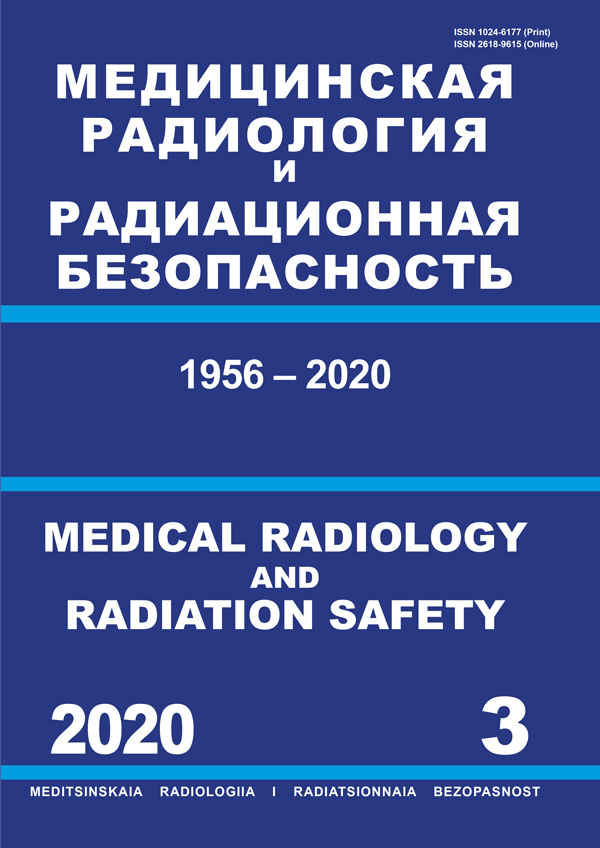Purpose: To prove the safety of the salvage cystectomy after organ preserving treatment in patients with muscle invasive bladder cancer. Material and methods: In the research retrospective data of 130 patients with muscle invasive transitional cell carcinoma of the bladder were selected. In the main group 66 patients undergoing of the salvage cystectomy after radiotherapy were included, in the control group – 64 patients who underwent of radical cystectomy without prior treatment. The main and control groups were matched by age, gender, category with cN (p > 0.05 for all). In the main group tumors which were beyond the bladder wall, hydronephrosis were more frequently diagnosed; during the salvage operations pelvic lymph node dissection rarely performed (p = 0.03) and orthotopic bladder substitution was made (p = 0.027). Results: The median of duration of the salvage cystectomy was 310 min, which was not significantly different from 300 minutes in the control group (p = 0.711). The median of amount of bleeding of the patients undergoing surgery after irradiation, was not significantly lower than that the patients who had cystectomy which performed without prior radiation therapy (1329 and 1802 ml respectively, p = 0.118). The frequency of intraoperative complications of saving cystectomy was 10.6 %, which did not differ from 7.8 % in the control group (p = 0.300). Only one kind of complication of cystectomy after radiation therapy was difficult to control the bleeding in 6 cases (9.1 %). The frequency of postoperative complications – 42.7 % in the main and control group 42.2 % (p = 0.530). The perioperative mortality was equal to 6.1 %. The operating time, blood loss, frequency, structure and severity of complications i did not differ significantly n the main and control groups (p > 0.05 for all). Conclusion: The salvage cystectomy is indicated to a sick muscle-invasive bladder cancer with an incomplete effect, relapse or intolerable toxicity, organ-preserving treatment, including radiation therapy. Desmoplastic reactions of the irradiated tissue cause the technical complexity of the interference and worsen the conditions for reparation. The most common intraoperative complication of salvage cystectomy is bleeding, in the structure of postoperative complications infections, intestinal obstruction and complications of the urinary anastomoses dominate. The accumulation of surgical experience make the frequency and severity complications of the salvage radical cystectomy comparable, offsetting an increase of operational risk in previously irradiated patients.
bladder, muscle invasive cancer, salvage cystectomy, radiotherapy, complications
Показаниями к спасительной цистэктомии являются неполный эффект, местный рецидив или непереносимые мочевые нежелательные явления у больныхмышечно-инвазивным раком мочевогопузыря, подвергнутых попытке органосохраняющего лечения,основанного на дистанционной лучевойтерапии. Помнению многих авторов, постлучевые изменения тканей в зоне хирургическоговмешательства обусловливают высокую частоту осложнений спасительной цистэктомии, в том числе, –фатальных. В связи с этимцелесообразность выполнения подобных операцийнередко оспаривается.
Основной целью нашего исследования являлся поиск доказательств безопасности спасительнойцистэктомии после органосохраняющего лечения у больныхмышечно-инвазивным раком мочевогопузыря путемсравнительного анализа собственных результатовспасительных цистэктомий послелучевой терапии ирадикальных цистэктомий, выполненных без предшествующего лечения.
1. Blandy J.P., England H.R., Evans S.J. et al. T3 bladder cancer - the case for salvage cystectomy // Brit. J. Urol. 1980. Vol. 52. P. 506-512.
2. Edsmyr R., Moberger G. and Wadstrom L. Carcinoma of the bladder: cystectomy after supervoltage therapy // Scand. J. Urol. Nephrol. 1971. Vol. 5. P. 215-221.
3. Lund F. cystectomy following full course irradiation // bladder tumors and other topics // Urological Oncol., 1980 Vol. 1. P. 287-289.
4. Eswara J.R., Efstathiou J.A., Heney N.M. Complications and long-term results of salvage cystectomy after failed bladder sparing therapy for muscle invasive bladder cancer // J. Urol. 2012. Vol. 187. No 2. P. 463-468.
5. Ahlering T.E., Lieskovsky G. and Skinner D.G.: Salvage surgery plus androgen deprivation for radioresistant prostatic adenocarcinoma // J. Urol. 1992. Vol. 147. No 3 Pt. 2. P. 900-902.
6. Crawford E.D, Skinner D.G. Salvage cystectomy after irradiation failure // J. Urol. 1980. Vol. 123. No 1. P. 32-34.
7. Bochner B.H., Figueroa A.J., Skinner E.C. et al. Salvage radical cystoprostatectomy and orthotopic urinary diversion following radiation failure // J. Urol. 1998. Vol. 160. No 1. P. 29-33.
8. Gschwend J.E., May F., Paiss T. High-dose pelvic irradiation followed by ileal neobladder urinary diversion: complications and long-term results // Brit. J. Urol. 1996. Vol. 77. No 5. P. 680-683.
9. Eisenberg M., Manuel S. et al. Early complications of cystectomy after high dose pelvic radiation // J. Urol. 2010. Vol. 184. No 6. P. 2264-2269.
10. Nieuwenhuijzen J., Horenblas S., Meinhardt W. Salvage cystectomy after failure of interstitial radiotherapy and external beam radiotherapy for bladder cancer // Brit. J. Urol. Int. 2004. Vol. 94. No 6. P. 793-797.
11. Srikishen N., Abreu A., Aghazadeh M. Robotic salvage cystectomy is safe: multi-institutional perioperative outcomes // AUA. 2015. Abstract: PD31-04.
12. Smith J.A., Whitmore W.F. Regional lymph node metastases from bladder cancer // J. Urol. 1981. Vol. 126. P. 591-593.
13. Swanson D.A., von Eschenbach A.C., Bracken R. et al. Salvage cystectomy for bladder carcinoma // Cancer. 1981. Vol. 47. No 1. P. 2275-227.





